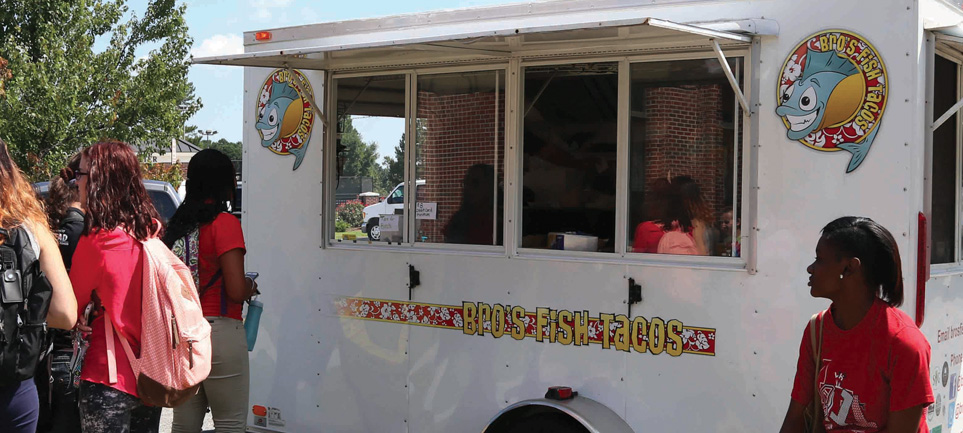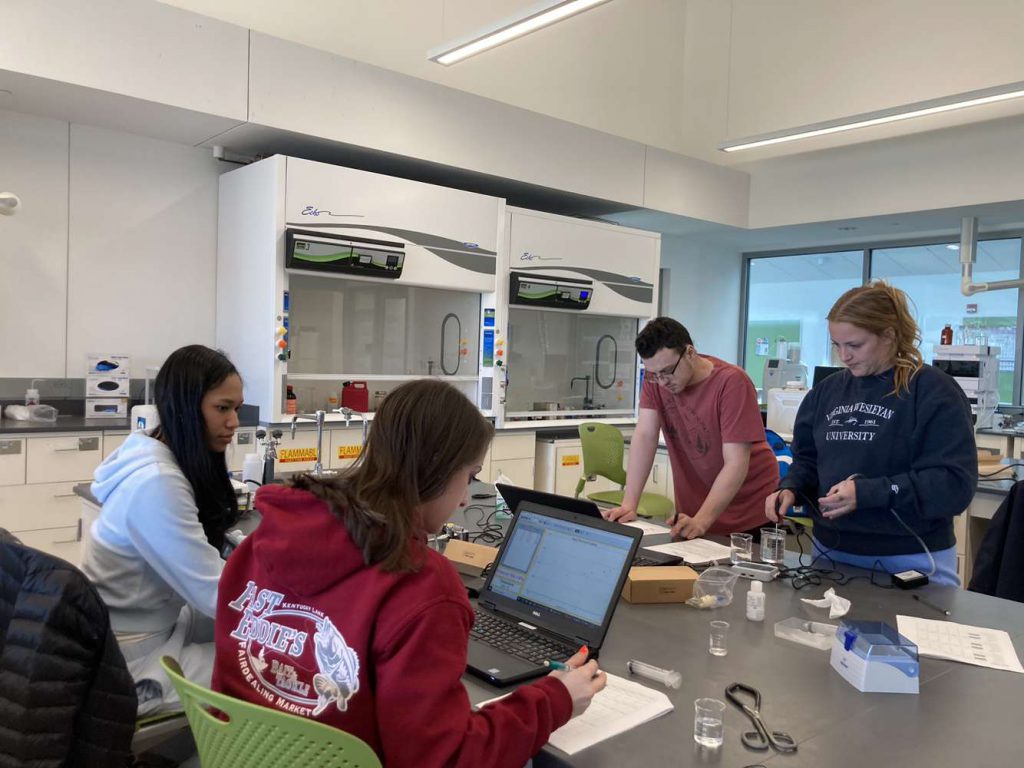
By Harrison Kirkland
Virginia Wesleyan students continue to seek alternative food options on campus, especially for nighttime hours.
In the past, students expressed interest in bringing food trucks to campus to offer different food options other than the dining options that are available to students currently.
Food trucks provide convenient different food choices for students and alleviate the pain of leaving campus to eat.
“Food trucks coming in on weekends and other times when neither the caf nor grille is open would give students who do not have the opportunity or means to leave campus a chance to find food more convenient to them,” President of the Student Government Association (SGA) Cassandra McEwan said.
Other schools in Hampton Roads such as Old Dominion University (ODU) and Norfolk State University (NSU) offer other food options on campus. ODU has a Tropical Smoothie on campus for students to enjoy, and NSU has a Chick-fil-A on campus. The greater food options provide a sense of community to the students. Some VWC students believe food trucks can have the same effect on the Virginia Wesleyan campus.
“I believe that food trucks coming to campus benefits the community,” McEwan said.
The SGA led the food-truck initiative and requested special permission from Sodexo about two years ago to have the trucks on campus. Past permissions were granted by the director of dining services on a case-by-case basis.
Last year, the Wesleyan Activities Council (WAC) brought several food trucks to campus, including Bro’s Fish Tacos, Sofrito and Twin Tiger.
“In each case, WAC was required to pay the vendors a guaranteed come-out fee to cover overhead expenses and guarantee that they would make a profit; those fees materialized as the food coupons that were distributed to students,” Director of Student Activities Kate Griffin said.
Those costs were substantial. When WAC reduced the amount of coupons, relying more on students to make purchases, sales dropped significantly.
The dropping sales made VWC less desirable to vendors due to lack of profit. Many food truck businesses have an established schedule at large local businesses where they know they’ll make a larger profit than they would here on campus. Additionally, food truck businesses were hesitant to come to campus in the evenings because that is their prep time for the next day.
In order for Sofrito to make a profit, they would need to deliver 50-75 orders in one day. They make fresh food, which goes to waste if not sold. As a result, it costs them money to go places where they can’t sell that many orders.
One of the issues with food trucks not earning enough revenue on campus centers on the fact that students do not know they are there. It seems there is a large need or want for food trucks, but when they actually come, students don’t buy from them.
“It needs to be a partnership. The students need to want us there and the school needs to support us by letting the students know we are here,” Cassandra Ayala, employee of Sofrito said. “We need someone with a voice, someone who wants the food trucks on campus and will make it happen.”
Food trucks also face problems getting the permission from food services at schools and working around their food contract.
The lack of food options available on campus after 9 p.m. is causing many students to find ways to travel off campus during the late hours of the night. For those who cannot drive or do not own a car, acquiring food becomes more difficult still. The cafeteria typically closes at 7 p.m., and the Grille is open Monday through Friday from 8:30 a.m. until 9 p.m. There are no other food options available on campus after this time, and options become slimmer on the weekends.
According to President Miller, Virginia Wesleyan must increase the on-campus student population to 1,000 students before most companies will consider locating on campus. However, food trucks do not require these numbers.
Students say they miss the food trucks and wish they had the opportunity to have other food options on campus.
“Bringing food trucks to VWC works better for the vendors when we bring them on large special occasions (ex. Homecoming Tailgate 2016) or when organizations or offices can subsidize their costs. Student Activities is in talks with a vendor about a potential Reading Day visit,” Griffin said.

